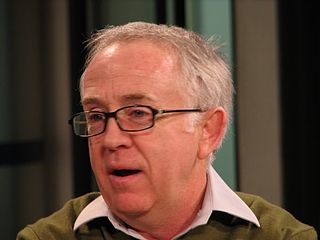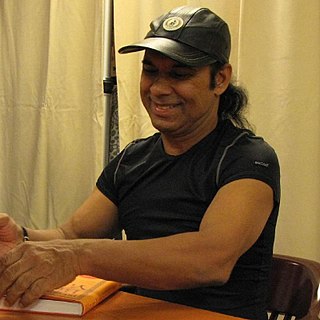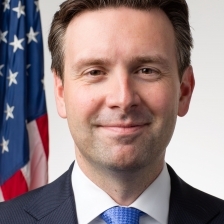A Quote by Jodi Picoult
My grandmother told me that her father used to ask her a riddle: What must you break apart in order to bring a family close together? Bread, of course.
Related Quotes
I think her Grandmother Hall gave her a great sense of family love, and reassurance. Her grandmother did love her, like her father, unconditionally. And despite the order and the discipline - and home at certain hours and out at certain hours and reading at certain hours - there was a surprising amount of freedom. Eleanor Roosevelt talks about how the happiest moments of her days were when she would take a book out of the library, which wasn't censored.
She smiled, pulling the photo a little closer, and I wondered if I should ask her, too, the question for my project, get her definition. But as she ran a finger slowly across the faces, identifying each one, it occurred to me that maybe this was her answer. All those names, strung together like beads on a chain. Coming together, splitting apart, but still and always, a family. (page 289) ~Ruby
My great grandfather used to say to his wife, my great-grandmother, who in turn told her daughter, my grandmother, who repeated it to her daughter, my mother, who used to remind her daughter, my own sister, that to talk well and eloquently was a very great art, but that an equally great one was to know the right moment to stop.
Since the fright of breast cancer hit our family, I have been surprised by how many people are dealing with breast cancer in their own family or with a loved one. One friend bluntly told me that she has been through it with her sister, her mom, and her grandmother, and all are healthy and mentally stronger because of the disease.
She didn’t understand why it was happening,” he said. “I had to tell her she would die. Her social worker said I had to tell her. I had to tell her she would die, so I told her she was going to heaven. She asked if I would be there, and I said that I would not, not yet. But eventually, she said, and I promised that yes, of course, very soon. And I told her that in the meantime we had great family up there that would take care of her. And she asked me when I would be there, and I told her soon. Twenty-two years ago.
The adolescent does not develop her identity and individuality by moving outside her family. She is not triggered by some magic unconscious dynamic whereby she rejects her family in favour of her peers or of a larger society.... She continues to develop in relation to her parents. Her mother continues to have more influence over her than either her father or her friends.
Blaire, This was my grandmother’s. My father’s mother. She came to visit me before she passed away. I have fond memories of her visits and when she passed on she left this ring to me. In her will I was told to give it to the woman who completes me. She said it was given to her by my grandfather who passed away when my dad was just a baby but that she’d never loved another the way she’d loved him. He was her heart. You are mine. This is your something old. I love you, Rush
I was raised in a religion that I never felt embraced me. That wasn't her fault. I had this amazing childhood. My mother is of her generation. If I'm going to ask her to accept me exactly as I am, I have to give her the same. She has read part of the book, but my sisters told her which chapters not to read!
I was raised by my grandmother. She had a very difficult time, raised all her kids, my father and everybody. Listening to those stories and finding her so strong, poised. Anybody who came close to her was made to feel blessed. And at the same time, it didn't matter how strong a person was, in front of her, their head would go down. She carried through her life raising everybody. That is my model.
Her [Eleanor Roosevelt] father was the love of her life. Her father always made her feel wanted, made her feel loved, where her mother made her feel, you know, unloved, judged harshly, never up to par. And she was her father's favorite, and her mother's unfavorite. So her father was the man that she went to for comfort in her imaginings.
[My dad] didn't do much apart from the traditional winning of bread. He didn't take me to get my hair cut or my teeth cleaned; he didn't make the appointments. He didn't shop for my clothes. He didn't make my breakfast, lunch, or dinner. My mom did all of those things, and nobody ever told her when she did them that it made her a good mother.
My mom's younger sister was born with Down syndrome. I was close to my grandmother when I was growing up. I remember talking to my grandmother about politics, and she told me that she regularly voted for the Democrats because she knew that they were going to look out for people like her daughter. That made an impression on me, too.

































